Students at De Montfort University Leicester (DMU) are leading the way in a movement to eliminate racial inequality across the institution.
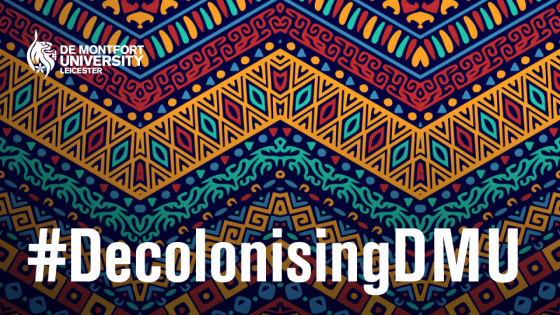
The movement - Decolonising DMU (DDMU) – seeks to create an antiracist university by addressing staff composition, creating inclusive curricula and improving the student experience.
DDMU student ambassadors are working with staff to challenge everyday norms of university life, highlighting issues and collectively working towards solutions.
They are empowering and supporting students by tackling the attainment gap – the difference between the proportion of white students awarded a first or upper second degree and the proportion of Black, Asian and minority ethnic (BAME) students who are awarded degrees of the same class - amplifying the voices of students of colour, creating safe spaces that drive the conversation and coordinating student-led events and activities.
We spoke to a few of them to find out about their motivations for becoming a DDMU student ambassador, as well as their hopes and aspirations for the movement.
Charmaine Marufu, Education Studies with Psychology graduate
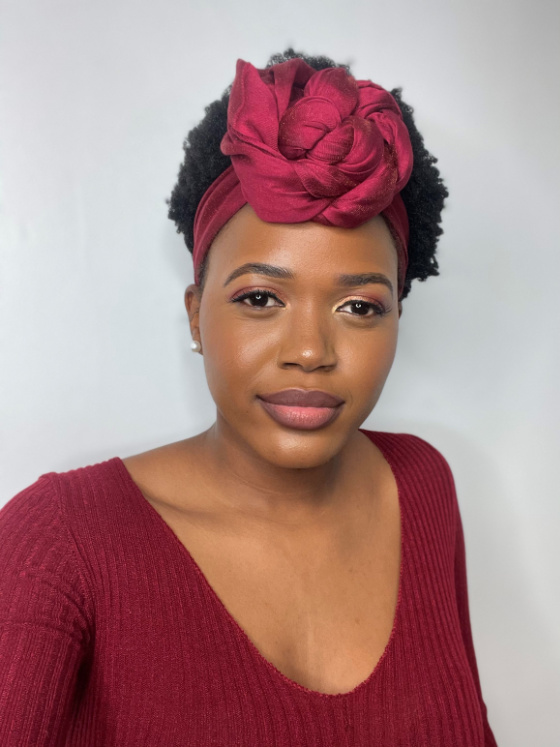
How did you first get involved with DDMU and what is your role now?
While I was doing my dissertation on the attainment gap in higher education I was introduced to DDMU’s researchers. I didn’t know much about the attainment gap before then and it really kind of hit home for me. Being a Black student at the time, I realised it was something that directly related to me and had the potential to impact me and people like me.
After spending time with the DDMU team I knew I wanted to do more so I joined them as an ambassador so I could be a bridge between students and staff. When I graduated in 2020 I was offered a full-time job to coordinate the team of DDMU student ambassadors and that’s what I’ve been doing since then.
How are DDMU student ambassadors helping to make a difference?
By creating safe spaces on campus through events like Unapologetically BAME and more, we’re helping to capture the student voice and are involved with consulting with university departments that are trying to do this work.
We’re also creating safe spaces for BAME students to interact internationally. For a year we’ve co-hosted monthly online discussions with students and staff at Georgia College and State University in America, to talk about issues of race and exchange perspectives. From talking about the Black Lives Matter movement to how the pandemic has affected BAME communities, it’s been really powerful. Part of the experience was about sharing tips on coping and staying resilient, and this is something we want to build on through sessions and workshops that will benefit all BAME students at DMU.
What will a decolonised DMU look like to you?
There’s no real reference as to what a decolonised university looks like, but for me it’s about representation. Given the high number of BAME students at DMU, I want to see them represented in everything from the curriculum and senior leadership to the photography used in marketing materials. I’m really passionate about seeing the attainment gap close too, with BAME students getting the same support and opportunities as others, and feeling like they truly belong.
Education and training has a vital part to play in this. For us to see real change, everyone must become aware of colonialism, unconscious bias and issues like this. There’s also power in lived experiences and we’re putting value on them by empowering BAME students to share their stories.
Taiwo Sofowora, second-year Fashion Textile Design student
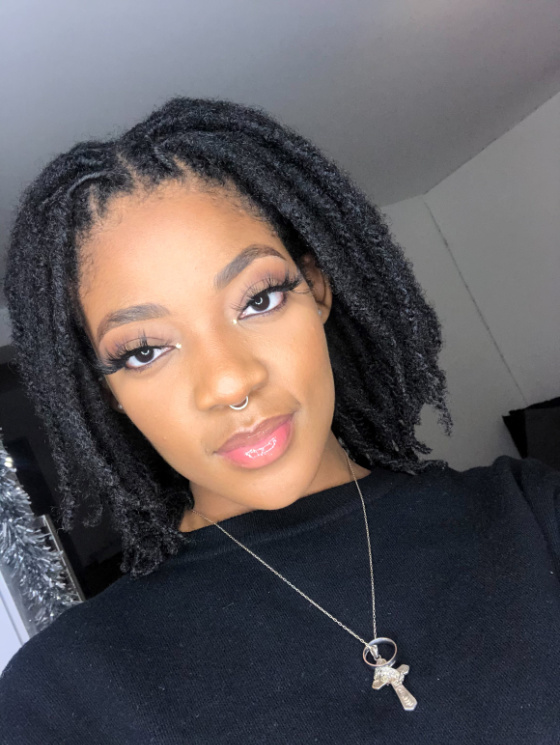
Why did you choose to become a DDMU student ambassador?
Charmaine is my friend, we go to the same church, and she invited me to my first DDMU event. From there I signed up to become an ambassador because I wanted to help to create a sustainable platform and opportunities for BAME students to get a better university experience in general. A lot of us feel left out and not seen. We find a sense of identity through our friends and societies we join, but we deserve to have that within our courses too.
What was it like exchanging experiences with students at Georgia College and State University?
It was comforting to know that we’re not alone, especially during lockdown. I looked forward to meeting every month and hearing other people’s experiences. Speaking to students from a whole different university in a whole different country made me realise that our community is not just in Leicester or the UK, it’s around the world.
It also brought home what a serious issue racism is and that it needs to be tackled. If DMU and other universities are talking about it maybe it will compel change to happen elsewhere. My motivation is that something has to change – not just at DMU but worldwide too.
How are DDMU student ambassadors helping to make a difference?
We’re the first generation of DDMU student ambassadors and the more we do, the more we realise there is to change. I think a lot of people just aren’t educated on racial issues and things that affect BAME people, so they could be participating in things like microaggressions and not even knowing. We’re helping to get people involved in the topics that will bring about change.
What will a decolonised DMU look like to you?
Changing the curriculum will bring a sense of inclusion to so many students. As a fashion student who grew up in Nigeria watching my grandma handmake stuff and crochet, I’d love to see those influences reflected in my curriculum.
We see African fashion influences on the runway all the time yet their origins are barely referenced. On my degree if I want to incorporate my culture into my work it’s up to me, but we’re only taught skills and techniques that are considered western.
Liam Sutton, final-year Law, Human Rights and Social Justice LLB student
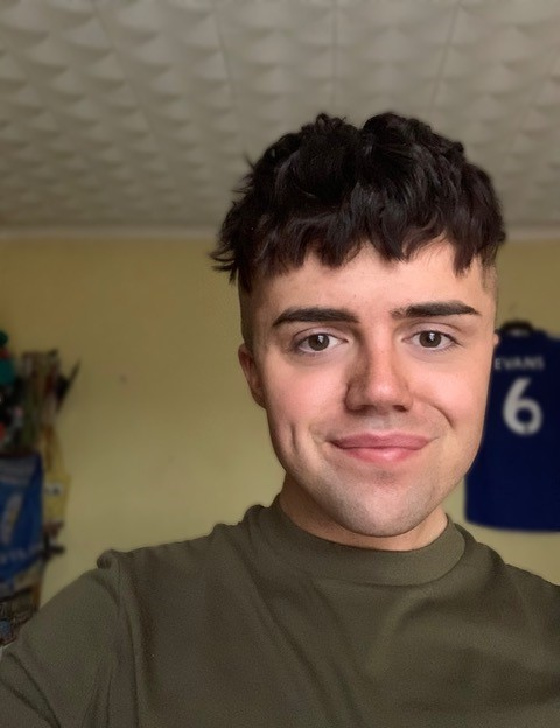
Why did you choose become a DDMU student ambassador?
I started off by going to the Unapologetically BAME events run by DDMU, a safe and empowering space for story and truth telling by BAME students. When you’ve had racialised experiences you can feel lonely, so at these events, even though it’s not a great thing that every student of colour has experienced racism, it’s comforting to know you’re not alone.
My situation is quite unique because having one white parent has led to me inheriting white features. This means I can ‘pass’ for a white person which allows people with backwards views to express them openly around me and that can be really difficult. I’m fully aware of my white ‘passing’ privilege as well as its challenges, so I became a DDMU ambassador to try and change things.
How are DDMU student ambassadors helping to make a difference?
DDMU is a team of countless people genuinely putting in hours of work to ensure a better legacy for BAME students. As ambassadors, we’re making sure that the voices of students of colour are heard.
What was it like exchanging experiences with students at Georgia College and State University?
It was really insightful because you do sometimes think your country’s unique when it comes to powerful countries. For example, we’ve had a terrible time with Covid-19 in this country, but then you hear how students in Georgia are risking their lives just going to university every day, because wearing masks isn’t mandated in their state. When you take into account the pandemic has affected BAME communities the worst, that’s really scary.
Just by talking about all sort of issues it’s clear that we’re all in the same boat, just a different style of boat. Some of us our in yachts, others in dinghies and others are floating on a bit of timber.
What will a decolonised DMU look like to you?
It’s 100 percent a great thing that DMU has taken this big first step to focus on institutionalised racism. The number one overall priority is to close the attainment gap and hopefully other universities will follow in our footsteps. Doing a degree is really expensive so we can’t continue to see some people getting better value for their money based on their skin colour.
Personally, I’d also like to see changes in how complaints about racism are dealt with, so that the process is more transparent. Also, as I’m Romani, I’m working hard to get the term ‘Gypsy’ removed from various forms students have to fill out, because it’s widely considered to be an offensive term.
Jasmine Kelly-gobuiwang, second-year Fine Art student
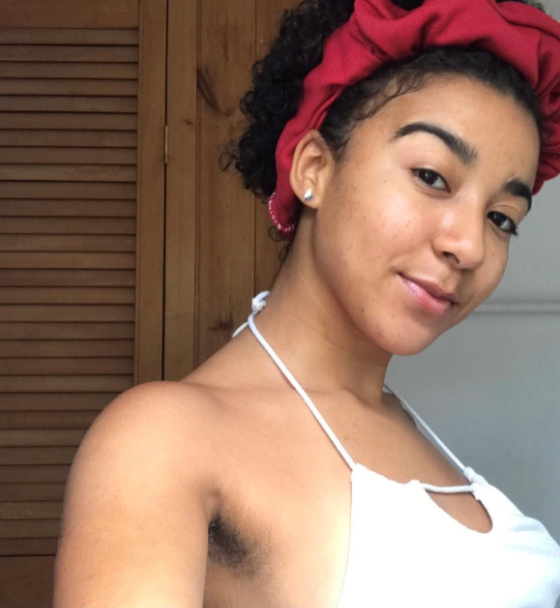
Why did you choose to become a DDMU student ambassador?
England colonised so many places and we need to take ownership of its history be it good or bad. We tend to hide a lot of things that are negative through shame and fear, but by talking about things we can have a space to learn and to change views.
I couldn’t have asked for a better childhood in Botswana but looking back at my school days in England, we didn’t really learn about many important Black figures throughout history, other than hearing about Rosa Parks and reading Of Mice and Men. When I was younger I went along with it because being half white/British I was naïve, but now I think it’s really disappointing. I’m having to teach myself when my education should have done that and I want things to be different for others.
What was it like exchanging experiences with students at the Georgia College and State University?
It’s been very important to hear perspectives of what’s happening in the UK versus the US. Even with so many different situations, we’re still similar in knowing that racism isn’t okay and that change needs to happen.
How are DDMU student ambassadors helping to make a difference?
DDMU is trying to come together as a community and everyone needs to put in the effort. Covid-19 has definitely reduced our audience but I feel there’s a disconnect with white people that we need to work on. Currently I feel like it’s mainly Black and Asian people who attend our events so we’re trying to make sure that white people don’t feel uncomfortable or judged so we can all come together for change.
What will a decolonised DMU look like to you?
It’s all about dismantling institutional racism. When you first start at DMU you have to go around and do little introductory workshops about all areas of the university and I think they should add in workshops on DDMU. Even if it makes some people uncomfortable it might open their eyes more. The only way we can make change is by embedding things that should already be in place.
Saying this, I’ve had a really good experience at DMU so far. The lecturers are great in the way they are educating me, but it would be amazing to have more Black and Asian artists come in to talk to us about their work and experiences. If your teachers and peers don’t look like you, you can feel like a misfit. I love doing what I’m doing but I shouldn’t have to be the one always talking about representation.
Tune in to the Decolonising DMU podcast for the latest news and views from students and staff at DMU.
Posted on Monday 10 May 2021